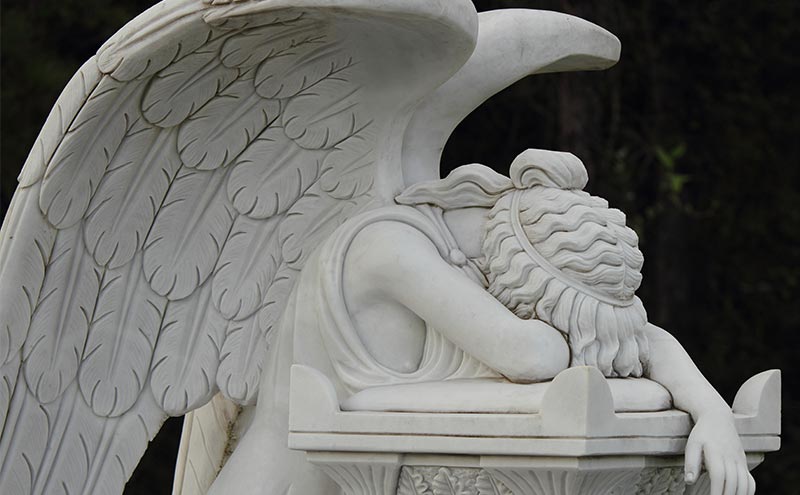
A Physician’s Journey
Physicians often encounter loss. We develop coping mechanisms (whether healthy or not), adjust, think of creative solutions, and keep working. We are instructed in medical school on how to deal with the loss of patients, but the loss of a family member is a different kind of loss—one that our medical training cannot completely prepare us for.
During my fourth year of medical school, I was living with my aunt and uncle, whom I was very close to. They had no children of their own, but treated me like theirs. They were the reason I was able to go to college; growing up, finances were tight in my family. My aunt served as an inspiration and female role model. She had the brightest, most vibrant soul I’ve yet to meet. That summer when she started having ankle swelling, or “cankles” as we would jokingly call them, I told her to go see her doctor that week. As an astute medical student, I presumed it could be a multiple of possible differential diagnoses ranging from anemia to heart problems, liver, kidney disorders . . . the list goes on.
I received a call the next week while out to dinner. “Your aunt has been diagnosed with leukemia, they’ve told us it’s called AML, and we want you to be the first to know. We’re going to beat this; we’re going to do this together.” My heart immediately dropped. I racked my brain with the medical knowledge I possessed, and immediately researched the most recent recommendations, treatments, best oncologists, making sure all our ducks were in a row. There was part of me that was scared, but I couldn’t show it. I didn’t know how to express that I knew AML does not have a 100% cure rate, that this would be a long road, and it wouldn’t be easy. But I remained hopeful, positive. I didn’t want to tell her all the things I knew that could go wrong.
The years that followed were some of the most difficult of my life. I graduated medical school and started residency between visiting my aunt, who was in and out of the hospital frequently. It is all so vivid in my memory: the bone marrow transplant, multiple chemo sessions, bone marrow rejection, subsequent nosocomial infections, seizures from the HSV encephalitis where she never fully regained her personality, the day in the ICU I thought she might not make it through the night, the discussions I had with her nursing staff or doctors when I thought her care was not appropriate. I see so many complications with my patients on a daily basis as an emergency medicine doctor. I see the worst of the worst, but somehow, it affected me differently, and my ability to cope was such a different sensation. Part of me felt guilt. I had started residency at a notoriously grueling yet prestigious program. I had responsibilities to myself, my program, my patients. If I wasn’t able to visit my aunt, or if I chose to do something else instead of seeing her, I felt immense guilt. I felt like I couldn’t do it all. How was I supposed to work 60+ hours a week, try to be a resident/daughter/niece, and make everyone happy? I couldn’t. Seeing her suffering and uncomfortable pained me as a physician. Knowing and seeing that she was slowly dying as I quietly watched was one of the most difficult things I think I’ll ever do in this life.
The feelings that subsequently followed were similar to the classic stages of grief. The denial part went pretty quickly; I mean, we’re doctors, we’ve got a diagnosis, I’m not going to deny that. Anger came in waves. I became upset. Why now? When she’s in her 50s, when I am in residency and feel like I have no time to help? She’s an amazing human being. What has she done to deserve this? I bargained with God, bargained internally with myself: maybe if I had gone over more, she would have lived longer. These were the things that constantly ran through my mind. I had a deep stage of depression, which impacted my personal relationships and my work. People knew, but I didn’t want people to feel sorry for me. Instead of dealing with it in a healthy way by seeing a therapist, or seeking professional help, I instead became bitter, angry. Every patient I saw wasn’t “sick enough” to justify me working. I was easily irritated, not sleeping well, and participating in unhealthy social behaviors to cope with my feelings instead of dealing with them.
I did eventually reach the acceptance phase, although it has been a long road.
At the end of her life, my aunt and I were able to have honest, beautiful discussions regarding her goals of care and last wishes. As a doctor, I was proud to be able to fight for what I thought was medically best for my aunt. When we knew her transplant rejection was getting worse and the end was nearing without any new therapies in sight, we were able to talk about what was important to her in her last days. She wanted to be with her family, relax, share some laughs, and hold us. I am forever grateful I was able to be part of that voice with her. When she passed, I was able to comfort her and our family, I knew what was normal and what to expect. I am lucky to say I was with her holding her on her bed as she passed.
The grief I felt after this journey made me reflect on how as physicians, we often compartmentalize our emotions, for the better or worse. I went back to work the day after my aunt’s passing. I was brought a coding patient and I almost burst into tears. I wasn’t ready to handle it. My mind said, “Buck up, this is your job.” There were months where I continued to compartmentalize, shut it away. I did not effectively grieve until I broke. This experience showed me that it’s okay to not be okay. As physicians, we are taught to deal with death and grief, and each of us handles it differently. But how do we cope with our grief from losing a family member while still being an effective, caring, compassionate provider? Part of my personal journey started by seeking therapy, focusing on wellness, and leaning on my great support network of family and friends. There are still rough days, but I hope this opens up a discussion on how we can better cope with loss in a healthy and effective way. My goal by sharing this story with you is to know you are not alone. There is no simple answer or “one size fits all” method for coping with grief—we each have to travel our own journey.
Danielle Wickman, MD



